
I have spent this week watching a good many films nominated for Academy Awards. Now, the so called ‘oscars’ have never had any importance outside of studio marketing departments and the halls of big entertainment agencies, but a friend happened to have ‘screeners’ and wanted to watch and so we did.
I want to write an entire post on Paul Thomas Anderson’s The Master, because I think it’s one of the best three or films of the last ten years. But I will say a few things here before linking to a couple other topics. Anderson is something of an engima, for he both works within a studio system, and far outside it. Having paid dues with acceptable films such as Boogie Nights, and the dreadful Magnolia, Anderson emerged with a couple flawed by not uninteresting films in Punch Drunk Love, and the operatic There Will Be Blood. It is the latter where Jonny Greenwood began his collaboration with Anderson, and it is crucial to see how impactful Greenwood has been on both films. The scores are works of art all by themselves.
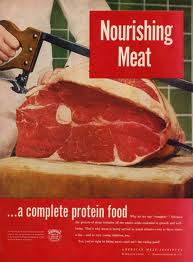
What is interesting however, is the particular moment, historically, in which The Master is set. I continue to think back on my childhood of the 1950s, and the sense of illusion which permeated the post war landscape of American cities and suburbs. Returning vets were often put up in people’s family homes (our family did, a man who eventually more or less became part of our family) and the rapidly ascending role of advertising and marketing. Into this vast repressed field of trauma landed redemptive practices and beliefs: Ayn Rand, L. Ron Hubbard (the most obvious model for the film), and Norman Vincent Peale and marketing — it was the rise of Madison Avenue (and I do find myself thinking of the Carousel episode in Mad Men) and of McCarthy and the HUAC hearings, and of Dwight Eisenhower golfing while a new hysteria permeated the State Department and Pentagon. The anti-communist trope was to eclipse all else and it has simply been rebranded today as The War on Terror.
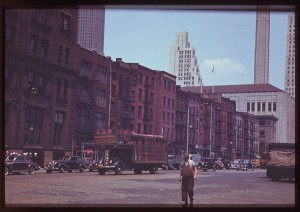
There had been self help advisors earlier, and home-spun religious speakers, from Any Semple McPherson to Dale Carnegie, and the still read Napoleon Hill. The Master though, captures the damaged and uneasy post war world into which the L. Ron Hubbard’s drop. Hubbard was also that singularly American sort of ego, a meglomaniac and pathological liar, a self aggrandizing prophet who seemed tailor made for an era in which advertisers were discovering as never before the desperation of an American public who was seeing the threadbare reality behind the master narrative of Disney and Television. I found myself thinking of Walt Disney several times while I watched the film, for Disney, too, was a pathological creator of sanitized sex-free worlds that promised an always smiling guilt free life of promise and “progress”. For the concept of progress lies behind much of this soul sick delusion.
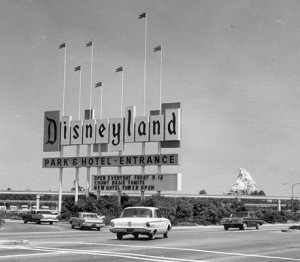
There is something almost visionary in Anderson’s sense of the collective pain of America, in his creation of Freddie Quell. The American trust and belief in progress was exactly what Hubbard, Disney, Rand, and Madison Avenue sold. There has always been the quality of the rube about US society, something Twain certainly recognized. A nation of bumpkins, unsophisticated and provincial. The second world war changed that to a degree. The returning soldiers had seen the world, and seen it as a vast battlefield on which moral battles were fought as well as military.
Its interesting to look back further to figures such as Helena Blavatsky, and to some of the Theosophists, through the Vivekananda introduction of Hinduism to the rubes — and even Walter Russell, and see its evolution in the sixties into Esalen and EST, and UFO cults or Ancient Alien spacecraft. There is not a lot of space between Hubbard, Area 51, Werner Erhard, Ayn Rand, and Astrology columns.
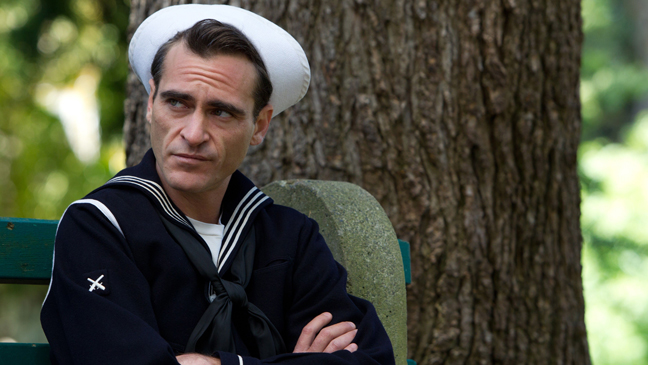
Anderson has created a film of fragments, an elliptical narrative as fractured as Quell’s psyche — a nervous conjured universe of sexual desire, paranoia and Puritan belief in hard work, self denial, and triumphalism.
The post war generation was one of urban migration, of itinerant and lonely men, most veterans, who found themselves outside the gates of Disney’s Tomorrowland. It is the most acutely sad portrait of America I can think of, though it echos everyone from John Fante to D.H. Lawrence, to James Cain, William Inge, and Steinbeck but it also never forgets its almost Reichian analysis of repression. The simulated sex on a beach, with a sand woman, is as perfect an opening as I can think of in American film. It is this unfulfilled and unexpressed self lacerating confusion and lust that pulses throughout, an exposed nerve in the illusory dream of a collective nation marching forward to perfection.

One cannot avoid thinking of this American epoch and casting forward through the ever greater role marketing played in the culture, but also the new age sensibilities that helped salve the wounded perplexity of a dwindling middle class, the white privileged suburbs that had started to crumble at the edges by the 1970s.
The criminality of almost all the self help, new age gurus, and the more and more infantalized audience of corporate created advisors such as Dr. Phil, or the just empty vapid utterances of the likes of Marianne Williamson, or Jane Roberts. These comic book level versions of what are really almost Hallmark Greeting Card banalities, tricked out in interplanetary accoutrements — accessorized with crystals and aroma therapy herbs, or channeling deities from quadrillions of years ago — none of it feels very different from Joe Smith and the white salamander, or the snake charming Christian evangelicals of the deep south and Appalachia. The only difference was that the likes of Hubbard and Lancaster Dodd, found it useful to focus on “progress” and science. For science and technology was the worship du jour anyway.

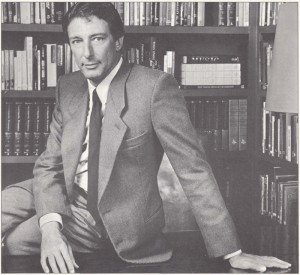
The post war landscape was infused with a Tommorowland ethos, a sense of rocket science and the “future”. Eternity was having survived the war, the shadow of Hiroshima sent cold psychic ash across the collective dreamscape and mixed in with Mickey Mouse and Father Knows Best.
It is interesting to compare Malick’s Tree of Life with the Anderson film. The fuzzy ellipses of Malick — and I think this comes from a sentimentalized psychology, a paint by n numbers notion of human sexuality, seem even more tedious when seen against the precise restlessness and neurosis of The Master. Brad Pitt, of course, seems simply bovine in a way — in comparison with Phoenix. Joaquin Phoenix carries a sort of Montgomery Clift capacity for making concrete a specific mental anguish. Both films look at an era now given full nostalgia treatment. It is long enough ago that the reality can be burnished, the misery and sadness reduced and the fashions amplified. This is source material ripe for art departments.
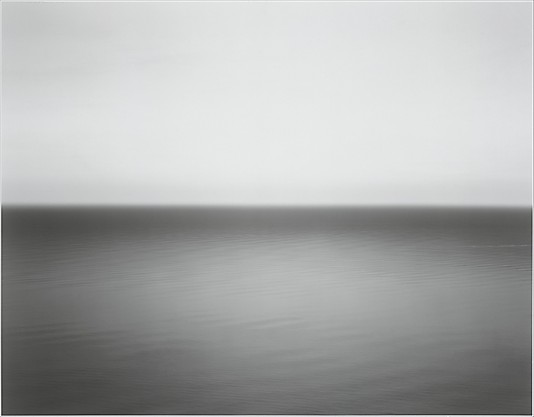
I suspect it is Anderson’s gift to intuit this trivializing tendency and to capture its precursors in the fabric of the narrative. This capture, for lack of a better word, is perhaps more a defusing of kistch by making manifest the emptiness of the secondary lives of the film. Some of this is simply a beautifully written script, and some of it is an acute instinct for knowing the class pains and the suffering of most not seen (the migrant worker shed scene is almost hallucinatory) and the effect on men working hard to forget most everything…the better to imagine a perfect future.
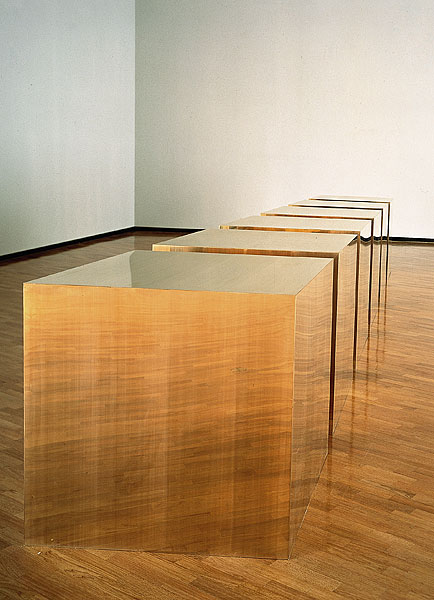
There are always echos in culture, the anxiety of influence, or just the internalized desire of that which cannot be really grasped, the ineffable and fleeting. But it is found in all aspects of the Spectacle.
On the other hand, to watch Zero Dark Thirty is to feel the sense of stupidity from all involved. Each performance lurches forward in its simplistic jingoistic fairy tale way. The sound of Cotton Mather’s voice wafts across the desert sands two hundred years later, in the chaste GAP ad like collection of Special Forces Marlboro Men who carry out the raid (worth noting there are thirty thousand such raids a year in Iraq and Afganistan). But this one was, we are told, to KILL Osama Bin Ladin…which they do, along with a few women. This chaste collection of masculinity make no sexists jokes, nothing about blow jobs or pussy, because we dont do that in fantasy myth making. One might suggest watching Kirby Dick’s The Invisible War for a better sense of life in this ‘man’s’ army. The simple stupidity of the Bigelow film is insult all by itself, but that it couches torture, and an acceptance of torture, as the sign of maturation for a young woman agent is almost incomprehensible in it’s moral dwarfism.
I have seen three or four films this last year that I think are really pretty significant. At the top is The Master, but I think Bullhead, Amour, and interestingly, Magic Mike, Soderbergh’s latest, are all worthy and impressive in their own way. The Soderbergh is worth noting because the world of male strippers is probably not going to be a big pull for audiences. In fact, the world of underachiving young men in Tampa, Florida, is an honest and rarely seen vision of working class malaise in small city America. The entire ritual of bachelorette parties, jock bonding, athletic scholarships lost to knee injury, or just lost, dreams lost one way or another — this is seen through a lens of the sexual fetishizing and the disturbing realities of life in the remoter corners of the spectacle. Often, or usually, dark corners.
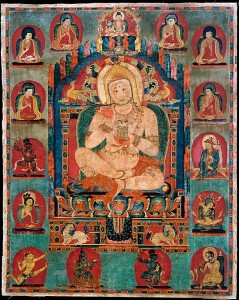
The discourse in the US today was formed by forces dating back before colonial times. However, the post WW2 coalescing of urban migration, social trauma — the mass death of Europe and the Pacific campaigns, as well as the spike in corporate media and marketing. The Bernays landscape, the selling of dreams, the selling of superiority — of white paternalism —this formed something basic in the psychosis of today’s US citizen. It is fraying now, the dream life of America. There is growing resistance to the pre-digested sense of the sensual and no matter how hard corporate media tries to keep it invisible –and in a sense they do this quite successfully — the cracks are leaking reality and more people seem aware than one might think.
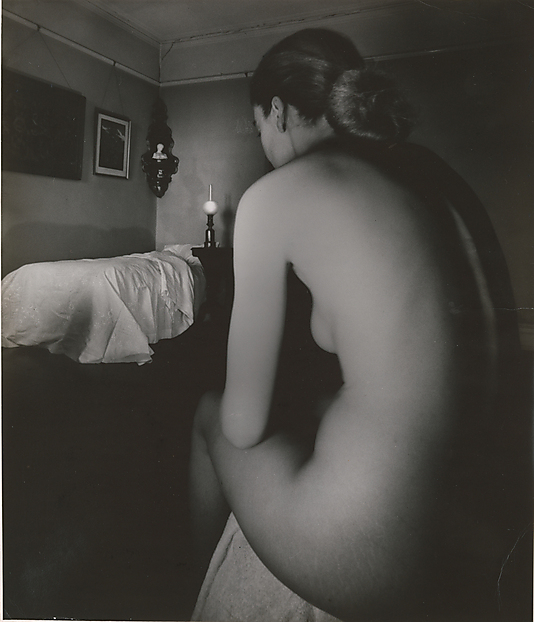
There will be applause for junk like Lincoln because every court needs its official court painter and while Bigelow serves as one, Speilberg serves as another. And this bit of boring hagiography is perfect for official validation (in much the same way The King’s Speech was perfect). The rituals of self glorification are being doubled down on. From the Super Bowl to the Oscars, this is the real religious life of America.
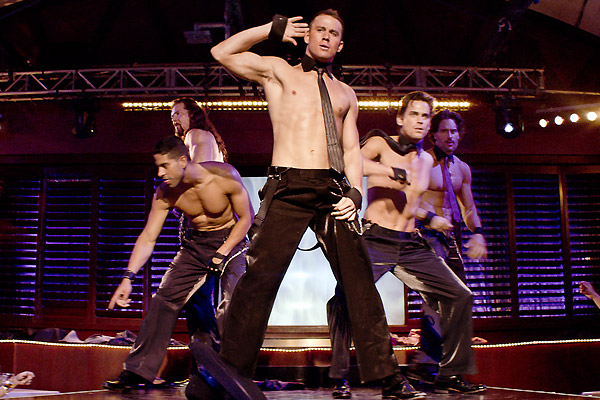
I think there is little hope for life within any institutional frame anymore, but I also know one has to pay the rent. How to do both stay outside the death machinery of institutional life, whether the academy or the corporate world of business, or the military, and survive — survive short of living in a cabin totally off the grid — this is the challange. But culture is one of the places where these forces meet and intermingle and create new psychic elements, new disinfectants of the soul. Aesthetic resistance means knowing how to read the Spectacle.
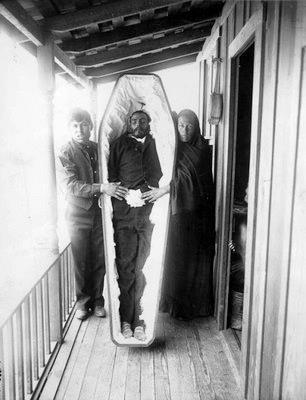
Knowing that Obama is in a sense the final expression of the logic that incinerated a couple hundred thousand people in Hiroshima, the logic of Imperialism. Of conquest. Of domination.
The Freddie Quells of the world are related to the Magic Mikes. They are related to all those outside the entrence to Tomorrowland, all who have no E ticket. Malick is redemptive, Anderson is not.
Here is a link to an old Stan Goff piece……appropriate this week in light of new info on Obama’s secret wars. http://www.feralscholar.org/blog/index.php/2010/01/31/jsoc/
Its not Zero Dark Stupid.
The appearance of Kali first came off the battlefields of 600 BC, the Hindu goddess of time and change — is also the destroyer of worlds. Shiva and Kali, one tempers the other. For we are both. The great rigor the artist who speaks the truth as known, not the pandered liturgy of the US state department. The vast American gulag, the Imperial bases throughout the least powerful places on earth — the addiction to resentment and jealousy and its toxic spillage as fear and rage.
Here is a brief excerpt from Chomsky on Imperial america……
“the very foundation of the international order is that the United States has the right to use violence at will. So how can you charge anybody?
And no one else has that right.
Of course not. Well, maybe our clients do. If Israel invades Lebanon and kills a thousand people and destroys half the country, okay, that’s all right. It’s interesting. Barack Obama was a senator before he was president. He didn’t do much as a senator, but he did a couple of things, including one he was particularly proud of. In fact, if you looked at his website before the primaries, he highlighted the fact that, during the Israeli invasion of Lebanon in 2006, he cosponsored a Senate resolution demanding that the United States do nothing to impede Israel’s military actions until they had achieved their objectives and censuring Iran and Syria because they were supporting resistance to Israel’s destruction of southern Lebanon, incidentally, for the fifth time in 25 years. So they inherit the right. Other clients do, too.”
The logic of domination. The logic of the anti-human, sex negative and puritanical — it is the enshrining of sacrifice in the name of business.
There is a speech to the recovering head cases of the war — the traumatized, those with nervous conditions — at the start of the Anderson film. It is a telling moment. For even there the dream was being sold. The ethos of hard work and self sacrifice.
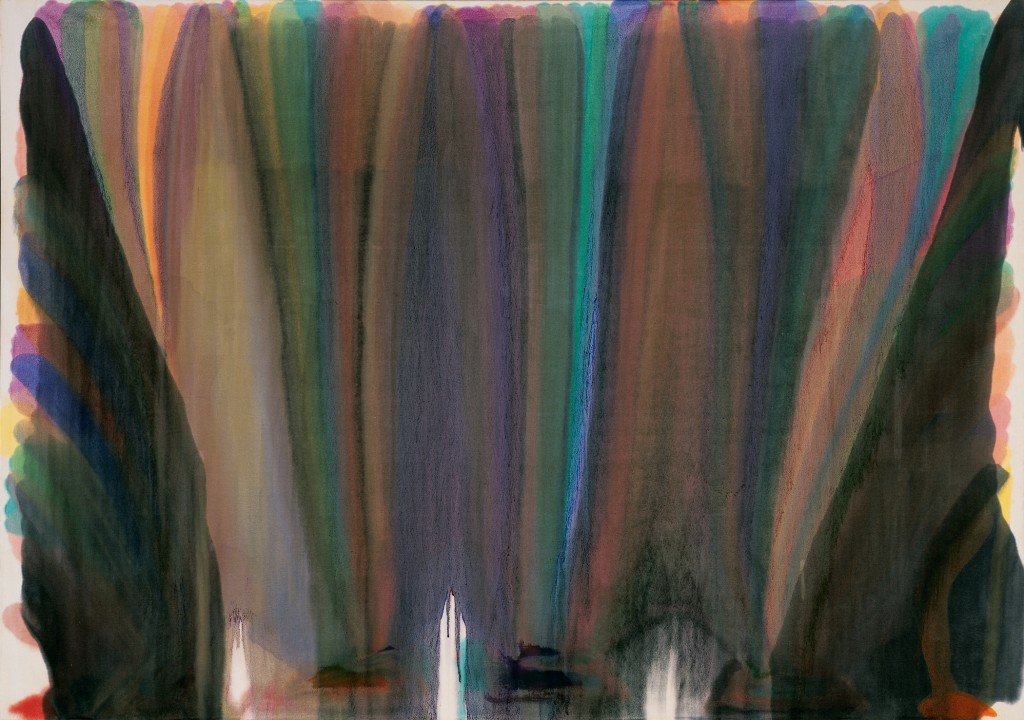
But it didn’t work out that way. A structural hierarchy of white supremicism and patriarchy was demanded and built. Was enforced. It is still enforced. The lonley and the doubtful will have a Lancaster Dodd or L. Ron Hubbard or Jack Rosenberg to exploit them. They still have the US military — in any of its branches. It still has TV. It still has Dr Phil to help. Or Oprah, or Jon Stewart or The Super Bowl. (never mind everyone knows long term brain damage is a given). The culture of entitlement is really bred from a sense of inadequacy. Privilege is held when you cannot find worth elsewhere.
Kali is worshipped as Bavatarini….she who reedems the universe.
She lays a foot upon Shiva, or blocks his path, to sate his anger.
The United States operates a vast domestic gulag, it extends its military to every part of the planet, all places it is not wanted. It is there to dominate. To use up bullets and bombs. To continue the vast never ending war.
Freddie Quell returns from Iraq today. Only with a worse opiate habit, and a box of steriods.
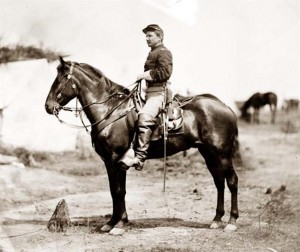

I had students like Freddie Quell, returning from “the war”, shattered, crazy, angry and morally self righteous. They are time bombs. And as teachers and counselors we were desirous of being compassionate and kind but at the same time only mildly aware that we have to no small measure created these young men by teaching them to critically think only so far, not teaching anything too “radical” or bleak. Simply by they’re being in an institutional setting that tests and measures them, pushes them into the four year institutions, sets their goals so they can get a “good job” in the local industry like Monsanto or Shell or Cisco and fit into a middle class culture we continue the cycle that is killing us all. I had to leave once I became aware that no radical or should I say honest pedagogy would be tolerated because it could not be measured and tested ad infinitum. And now that I have moved out of Berkeley and into Los Angeles I observe so many people now who trust in the words of Marianne Williamson, astrological predictions, are members of cults like Scientology and live by them, worship celebrities, are covetous of more and more wealth and believe they are prospering by these crackpot ideas when in fact they can not stand the bleakness of their existence and will not express it through their so called art and refuse to see they live in a country that destroys everything everywhere to keep the illusion of progress alive. There is nothing to be done really. Except grow gardens, try to create something honest, build community somehow and love whoever you love. And this I think is the hardest thing to do.
“brought Hinduism to the Rubes”
This really is sitting with me. At a community level I see a lot of wonderful spaces being subjected to this. The quick new age fix. What were once spaces of critical development for youth turning slowly into snake oil tents.
Hey John, glad you wrote about The Master. I’ve been trying to figure out how to write about it recently because the film has had such a big impact on me. Someone referred to Anderson as the bizarro child of John Cassavetes and Orson Welles, a proclamation I dismissed until I started looking closer at his films. It’s interesting that Anderson has risen to level of auteur in Hollywood simply for making these kinds of films. He is also disregarded as pretentious or self-indulgent by many int he business. What I like about The Master, especially in relation to awards season, is that it has resisted appropriation. Other than the actors, the film itself was misunderstood and overlooked for obvious reasons. Which is fine, I prefer it that way. But when the film came out there was such a backlash against an alleged self-proclaimed “highbrowness” – ironically it was the people who understood the film less who labeled it as such.
As you know, I’ve always been a big fan of Radiohead – Johnny Greenwood’s band. There was the essay you turned me on to once called Kid Adorno about Radiohead’s album KID A (probably the most formative influence in my life as a fledgling writer in film school). If you remember, Greenwood also did the music for We Need to Talk About Kevin and There Will Be Blood – film that wouldn’t be as good without his score.
I never understood the appeal of Disney to anyone over the age of 12. Yet people still flock to the park as adults in some kind of kitschy effort of recapturing moments of their youth or something, I don’t know. Disney is the worst of the studios and as a corporation it is a rotten vampire, about as anti-art and anti-artists as you can get. And cheap. Very cheap, I worked form them coming out of school. People are always disappointed that Disney has veered so far from Walt’s original idea, but isn’t this soulsucking moneygrubbing evil empire the logical conclusion to Disney’s dream of Tomorrowland?
By the way, here’s an interesting article about a film made at Disney World without Disney’s approval: http://www.latimes.com/entertainment/envelope/moviesnow/la-et-mn-sundance-2013-escape-from-tomorrow-disneyland-randy-moore-release-20130118,0,4296.story
@joe
yeah greenwood (and i corrected my mis spelling of his name) is a huge factor in both the Anderson films and We Need To Talk About Kevin. He’s almost in a class by himself with respect to film scores.
I think what is interesting with The Master (well, among many things) is the reception to the film. First off, I dont see any Cassavetes…….but its worth looking at why or if Im right. Anderson has created his own version of formalism — (i think Peter Greenway was in my head when I mis wrote Greenwood’s name) — and is sort of the opposite of what Cassavetes was doing. Ive never been a huge cassavetes lover…..though I sort of appreciate he was out there. I think text matters too much for me to find a lot of interest in his work. The obvious comparison these days is with Malick. And I think Anderson is simply a lot more rigorous about how he weds text, narrative, and the direction of actors to his camera-vision than Malick is. I screened Days of Heaven my last semester at the film school and thought, wow, this hasn’t aged well at all. Its a cinematographers film. Beyond that, it was actually rather empty…..it was art design or something. With Tree of Life the way in which metaphor became so literalized was downright funny at a certain point. I felt much the same about Silent Light….another hugely overrated film. There was so much that bothered me about Silent Light…..the more for how skilled much of it was, and how he found very compelling ways to use image in places……….but the narrative ended up somehow turning in on itself until there was nothing there. It raised questions, though, and for that I give it credit. With The Master there is this interesting distance from what we think of as naturalism. It was a formalist reading of naturalism in a sense. It was a critique of modernism because of that, which fit the sense of history and place he established. You were not allowed to re-narrate that film…..the mimetic was enclosed, and one was forced to really meditate on the form. That is what was left very mushy in the malick. And sentimental. Anderson is ruthlessly unsentimental…..which wasnt so true about ‘Blood. But that was an opera in a sense. This was far more stripped down…….and there are sequences which are simply terrifying in the most existential sense. His running out of the cabbage pickers shed…..and stumbling along until he comes upon the steamboat. Its just a vivid sort of nightmare of the entire society. And an historical nightmare. Its quite a remarkable film.
As for disney. Man, Id love to write something about DIsney at some point. Im aware the studio is beyond cheap, my agent wouldnt let go on interviews there at a certain point. But even old walt was horrible to his artists. He is an interesting figure to contemplate. The creator of Mickey Mouse.